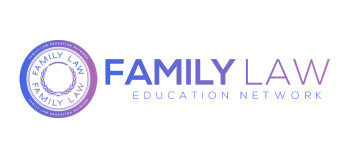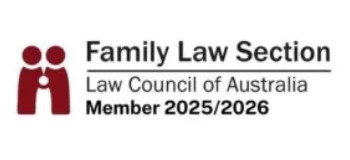Property / Financial Settlement Lawyers Brisbane, Secure Your Financial Future From The Start
You’re not alone, get clarity, relief, and results from property/financial settlement lawyers who listen and act fast.
You’re Anxious, Uncertain, Maybe Even Angry - And That’s Normal
Separation creates emotional chaos. It is the uncertainty around finances that often feels most stressful.
You might be wondering:
- What will I walk away with?
- How is everything split?
- Will I be okay financially?
- How does this affect my business?
These aren’t just legal questions. They’re life questions. And we’re here to help you answer them clearly, quickly, and with compassion.

Here’s What Happens When You Contact Your Property/Financial Settlement Lawyers...
Talk With an Experienced Lawyer
Quick response – no delays and you will speak with a expert, understanding lawyer who cares.
Get Clear Answers About Your Rights
We’ll explain what’s possible and how the law applies to your specific case - in simple, plain English.
Feel Clear and Confident Moving Forward
Whether you engage us or not, you’ll leave the call with certainty and direction.

You Deserve More Than Legal Advice. You Deserve Financial Clarity.
The people who choose this firm are often professionals themselves – doctors, accountants, lawyers, consultants, or small business owners with complex financial matters to resolve. If that’s you, you’re in the right place.
You won’t be treated like a textbook case. You’ll be supported with a strategy that fits the reality of your life and finances.
And when your matter calls for input beyond legal advice, you’ll have access to our network of trusted professionals – from forensic accountants and valuers, to mortgage brokers, financial planners and specialist barristers. We refer only to experts we trust and collaborate with regularly, so you’re never left searching for answers alone.
You have built something important. Our job is to help you protect it, and make decisions that bring long-term confidence, not regret.
Trusted & Recognised Memberships, Associations and Affiliations






Real Stories from Clients Who Finally Got Financial Clarity
Posted onTrustindex verifies that the original source of the review is Google. Very happy with the service, advice I received from Skye, Felicity and team. Very professional, and listened to my needs to provide good advice. Highly recommendPosted onTrustindex verifies that the original source of the review is Google. Jill and the team are professional, responsive and very knowledgeable. I have no reservations in recommending the law peoplePosted onTrustindex verifies that the original source of the review is Google. Jill Johnstone and The Law People team always provide exceptional service from start to finish which is why Rouse Lawyers confidently refers its clients who need expert and experienced family law solicitors to them. The Law People know how to guide clients through every step, making potentially stressful situations more manageable. Clients benefit from The Law People’s incredible knowledge and genuine care for client well-being.Posted onTrustindex verifies that the original source of the review is Google. Jill and the team are fantastic. I highly recommend them for any family law matters.Posted onTrustindex verifies that the original source of the review is Google. The staff at The Law People are total pros. They are friendly, supportive and above all they get results. Highly recommend, particularly if you are a woman who is nervous about being taken seriously.Posted onTrustindex verifies that the original source of the review is Google. Wonderful team to work with.Load more


Led by an Accredited Family Law Specialist
When everything feels uncertain, it helps to know you’re being guided by a team led by one of Queensland’s most qualified family lawyers.
Less than 3% of solicitors in Queensland hold the title of Accredited Specialist in Family Law. It’s not a marketing term – it’s formal recognition from the Queensland Law Society that Jill Johnstone, Principal of The Law People, is among the top-tier experts in the state.
For you, that means:
- Advice that’s precise, strategic and fully aligned with current legal standards
- Representation from someone trusted by peers, judges, and clients alike
- Fewer delays, fewer missteps, and a smoother path to resolution
In complex or high-stakes matters – especially involving children, property, or financial disputes – that level of expertise can make a real difference in your outcomes.
What truly sets this team apart is that legal skill never comes at the expense of personable service. You’ll feel it from the first conversation – real understanding, practical advice, and guidance that puts your best interests at the centre.
So if you’ve been searching for family law advice you can truly trust – you’ve just found it.
Property Settlements - Summary of the Law
- What’s Included? Homes, loans, super, businesses, trusts, personal assets.
- How Is “Fair” Decided? By looking at the net asset pool, contributions, future needs, and the overall justice and equity of your matter.
- Why Time Matters: The court uses current asset values (when agreement is reached, or the Court makes a decision), therefore delaying can be costly.
- Avoiding Court: Most cases settle outside of court with the right support.


Complex Cases
Facing a complex property settlement can feel overwhelming, especially where family businesses, trusts, companies, rural property or overseas assets are involved.
These matters often go beyond straightforward division of property and require both specialist legal knowledge and an understanding of financial structures.
Being an Accredited Family Law Specialist, Jill Johnstone, leads a team with the rare combination of legal and financial expertise that these situations demand. This means advice is not only legally sound but also financially informed, helping ensure clarity and confidence in negotiations.
Every matter is handled with discretion and a focus on what matters most, achieving a fair and sustainable outcome that protects future security.
Even where the asset pool is large or the structures complex, clear guidance and tailored strategies are available so decisions can be made with confidence.
Property Settlement Involving Business
Our property settlement lawyers have resolved property/financial settlement covering a wide range of businesses:
- Agribusiness and farming operations (cattle, cropping, vineyards, orchards)
- Building and construction companies
- Childcare centres and early learning businesses
- Dental practices
- Franchises (hospitality, retail, fitness)
- Hospitality venues (restaurants, cafes, hotels, pubs)
- Import/export businesses
- Insurance brokerages
- Medical specialists’ practices (orthopaedics, dermatology, private clinics)
- Pharmacies
- Professional consulting firms (HR, management, marketing)
- Property development companies
- Real estate agencies
- Surveying and town planning firms
- Tech start-ups and software development companies
- Telecommunications contractors
- Veterinary practices
- Warehousing and logistics businesses
- Wholesale distribution businesses (food, liquor, household goods)
- Winemaking and breweries


Complex Financials or Hidden Assets
If your financial situation feels complicated, or you are concerned that assets may be hidden or difficult to untangle, it can be overwhelming to face a property settlement.
Businesses, trusts, companies and multiple entities can make it hard to know what is really in the pool or whether everything has been disclosed.
With the right approach, these structures can be carefully traced, valued and explained, giving you clarity about what there and reassurance that nothing is overlooked.
To achieve this, we work alongside trusted experts such as accountants, forensic accountants, valuers, and financial advisers. Together, we build a clear picture of your financial circumstances so that any settlement is based on the full and accurate details of your situation. This means you can move forward with confidence, knowing your interests are being properly protected.
Property Settlement - Common Questions
Sorting out property/financial settlement after separation is often one of the biggest concerns people have. Whether it involves the family home, superannuation, businesses, trusts, or debts, it can be hard to know what’s included, what’s fair, and how long the process will take.
Below, some of the most common questions about property/financial settlement are answered. This information is general only and not a substitute for legal advice. For guidance that’s specific to your situation, please contact The Law People to speak with one of our experienced family lawyers.
Do I have to wait until I’m divorced to sort out property settlement?
No. Property settlement is a separate process to divorce. You can start negotiating and finalising property and financial matters as soon as you separate. In fact, it’s often better not to wait, as assets can change over time.
What if my partner is hiding assets?
The law requires full and frank financial disclosure. If you suspect assets are being hidden or undervalued, steps can be taken through the courts, subpoenas, and expert involvement (such as forensic accountants) to uncover the true financial position.
How long do I have to finalise a property settlement?
If you were married, you must start property proceedings within 12 months of your divorce becoming final. If you were in a de facto relationship, you have 2 years from the date of separation. Extensions can only be granted in limited circumstances.
You Deserve to Know Where You Stand Financially - And What Comes Next
No more guessing. Let’s get your questions answered and your plan in place.
Property Settlement Lawyers Brisbane
Frequently Asked Questions
What happens to the family home?
The family home is usually one of the biggest assets. It doesn’t matter whose name it is in, the Court looks at contributions (financial and non-financial) and future needs to decide whether one party keeps the home, it is sold, or another arrangement is made.
How are businesses and trusts treated in property settlement?
Businesses, companies and trusts are often included in the asset pool, even if they are complex. They will be valued, and any control or benefit a spouse has may be taken into account. This is where expert advice and collaboration with accountants and valuers becomes very important.
What if we already agreed on who gets what?
That’s a great start, and you still need to formalise your agreement so it’s legally binding. This can be done through Consent Orders filed with the Court or by entering into a Binding Financial Agreement. Without this, either party could come back later and make further claims.
Do contributions as a stay-at-home parent count?
Yes. The Court recognises non-financial contributions such as raising children, managing the household and supporting the other spouse’s career as being just as important as direct financial contributions.
What if my ex refuses to provide financial documents?
You can request disclosure through legal channels, and if necessary, the Court can compel disclosure. There are serious consequences for failing to provide accurate information.
How is superannuation treated?
Superannuation is included in the property pool. It can be split between parties by agreement or by Court order, but it remains subject to superannuation laws and isn’t accessible until retirement.
What if we can’t agree on a property settlement?
If negotiation or mediation fails, either party can apply to the Court for property orders. The Court will consider contributions, current circumstances, and future needs to decide what division is just and equitable.
Can I refuse financial disclosure?
No. In family law property settlement cases, both parties have a legal duty to provide full and frank financial disclosure. This means sharing documents like bank statements, tax returns, payslips, superannuation statements, business records, and trust documents if relevant.
If you refuse to provide disclosure, the Court can:
- Draw negative inferences (assume you are hiding assets).
- Make costs orders against you.
- Delay or dismiss your case until disclosure is provided.
Financial disclosure is not optional, it is a key part of making sure the property settlement is fair and accurate. Even if you think some information is private or irrelevant, it is often safer to disclose than to risk penalties later.
What happens if my ex has a family trust or company in their name?
Family trusts and private companies can be included in a property settlement if one party has control or significant benefit from them. Even if you’re not listed as a beneficiary, the Court has the power to “look through” the structure to ensure fairness.
Can overseas property be divided in an Australian property settlement?
Yes. Assets held overseas are part of the asset pool. Orders made in Australia may need to be recognised or enforced in the overseas jurisdiction, which can add complexity, but these assets cannot be ignored.
How are inheritances treated in property settlements?
It depends on when the inheritance was received and how it was used. Sometimes it’s considered part of the property pool, and sometimes as a financial resource. The Court looks at contributions and fairness when deciding whether (and how) to include it.
What if my partner is trying to transfer or hide assets before settlement?
The Court can set aside transactions designed to defeat a property claim (under section 106B of the Family Law Act). Urgent injunctions can also be sought to prevent assets from being sold, transferred, or diminished.
How are farming properties or family businesses divided?
Farms and businesses often involve land, companies, trusts, and contributions from multiple family members. The Court carefully considers whether the business can continue operating, whether one spouse can take it over, or whether sale or restructuring is required.
How does the Court deal with tax, loans or debts in settlement?
Liabilities such as mortgages, tax debts, business loans, or guarantees are included in the asset pool. The Court also considers who is best placed to take on these liabilities. Sometimes tax consequences (like CGT) are factored in when dividing property.
What if my financial situation is tied up in multiple entities?
When assets are spread across trusts, companies or partnerships, they may still form part of the settlement if one or both parties have control or benefit. Independent experts like forensic accountants are often engaged to trace and value the true extent of these interests.
Can superannuation interests in self-managed super funds (SMSFs) be split?
Yes. SMSFs are included in the property pool. Special care is needed, as they often contain business premises, direct investments, or complex assets. Professional valuation and careful structuring of any split is essential.
How are compensation payments, personal injury payouts or redundancy payments treated?
These are assessed on a case-by-case basis. They may be included in the asset pool if received during the relationship, or treated as a financial resource depending on their purpose (e.g., ongoing medical care).
What if my ex hasn’t contributed financially but wants a share of my business?
Non-financial contributions such as raising children, managing the household, or supporting you in your career are recognised by the Court as equally valuable. The Court takes both financial and non-financial contributions into account when dividing assets.
What if a family member claims an interest in our property?
Sometimes parents or relatives lend or gift money, or say they “own part” of the house or business. These claims can be raised in family law proceedings, and the Court may need to decide whether it was a genuine loan, a gift, or a real property interest.
Can the Court make orders that affect people who aren’t part of our relationship?
Yes. Under the Family Law Act, the Court has powers to make orders involving third parties, such as banks, companies, or relatives, if it’s reasonably necessary to achieve a fair division of property. This might include ordering the transfer of company shares or directing a third party to release funds.
What happens if property is held in someone else’s name (like a parent or sibling)?
If it can be shown that the property is really controlled by one of the spouses, or was acquired through the couple’s contributions, the Court may treat it as part of the asset pool, even if legally registered to another person.
How does the Court deal with loans from parents or relatives?
Courts often have to decide whether “loans” from family are genuine debts to be repaid, or informal family support that shouldn’t be counted as a liability. Evidence such as written agreements, repayments, or past behaviour is crucial.
Can creditors or banks become involved in a property settlement?
Yes. If one or both spouses have business loans, personal guarantees, or significant debts, creditors may be directly affected by property orders. The Court can join them to proceedings so their rights are considered.
What if my ex transferred assets to someone else before separation?
The Court has the power to set aside transactions intended to defeat a property claim, even if the assets were transferred to a friend, family member or company. These are called “sham transactions” and the Court has broad powers to claw assets back.
How are jointly owned businesses with extended family members dealt with?
If the business is co-owned with siblings, parents, or business partners, the Court will need to consider the rights of those third parties. Often, valuation experts are brought in, and restructuring or buy-out arrangements may be required to protect everyone’s interests.
Can the Court divide assets from a family trust controlled by parents?
If a spouse has no real control over the trust, the assets may be treated as a “financial resource” rather than property. But if a spouse effectively controls the trust, even if parents are involved – the Court may treat the trust assets as part of the property pool.
What about companies where both spouses and other family members are directors or shareholders?
These can be highly complex. The Court may look at shareholdings, voting rights, and actual control. Even if other directors or shareholders are involved, the Court can still make orders affecting those interests if one spouse has significant influence.
Can international business or family arrangements be included in settlement?
Yes. Even if assets or trusts are overseas, they may still form part of the settlement in Australia. This often requires specialist advice to manage enforceability in other countries.
